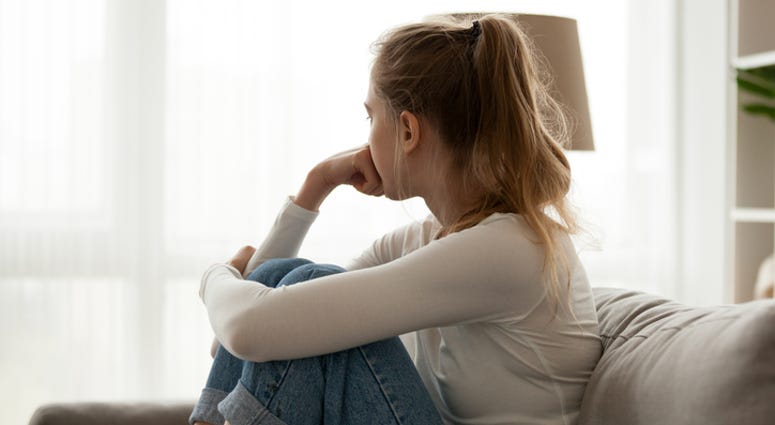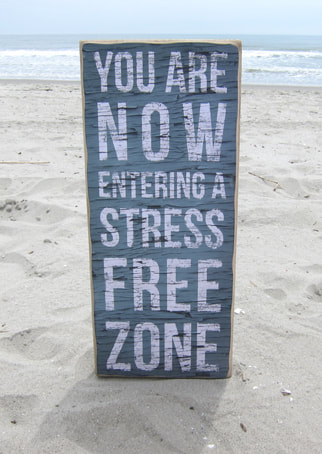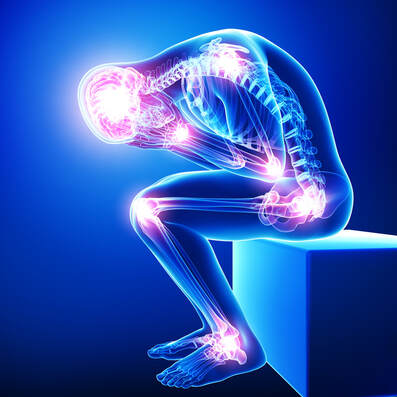 My thoughts began to coalesce around this topic this morning in the shower. As my practice has evolved and I am in a better position to observe the common thread that weaves through it - I have come to describe it as stress management (and mind/body balance). But I think that's a term more familiar to and more narrow to the boomer generation.
Without divulging any confidences of my clients, one thing I have noticed from intake form is the prevalence of medications for anxiety and or depression. Nearly everyone that comes to me is on some form of medication for anxiety and or depression. Granted my practice has never focused on mechanical things; body part repairs, bad backs, etc. so for others it may be different. People get massage for a variety of different reasons. As I peruse internet forums and online conversations to get a better understanding of how other generations view this world (so that I myself may make sense of an increasingly unfamiliar and unhappy place we now inhabit) I see just how widespread generalized feelings of anxiety exist in the population. Without elaborating on the details of the world in 2024; wars housing, economic uncertainly, political polarization, social isolation...etc....etc.... etc. Suffice to say that its easy to see how and why people are in a constant state of worry or panic. This also helps explain the near universal appeal of "nostalgia". People long for a simpler time, whether the experienced it or just imagine it. Our brains are not built for all this worry. Our brains developed and are wired specifically to pay attention to "danger" signals and react. Think being eaten by a sabre tooth tiger, surviving an ambush from a villian. The brain is wired to let non threatening inputs just pass through. However we no longer live as cavemen. The physical threats have mostly vanished but have been replaced by virtual threats, Things we read about, things we disagree with, things we worry over - ALL THINGS BEYOND OUR CONTROL. Worrying about things we have no control over is anxiety. Worrying about things in our past that we cant let go of is depression. I'm not medical and I may have this slightly wrong so please feel free to help me learn, in the comments if you have an informed take. One other fascinating aspect of the brain is that it creates for you this beautiful, textural 3d universe of sights, sounds, colors, feelings, tastes, smells. It literally "creates" the world around you, for you. Yet the brain itself exists in silence and darkness. It never feels the sun, or smells the flower or tastes the nectar - it creates these things for you, from a constant input of basically electrical impulses, that it interprets and weaves this tapestry of the universe for you. The downside is that think about what we choose to fill our brain with and how - Facebook feeds, Instagram scrolls, people looking happier than us, people disagreeing with us, people complaining, on and on and on....so its paints that for you!!!! Yikes So what can you do about it? I ponder and struggle with this myself. Start by turning down and tuning out the noise. Get tactile, live in the moment......stick your fingers in some dough, play some music, ride a bike, feel the sun warm your skin....real experiences, not to post about just experience. So how does Massage fit into this? Massage is immediate, its in the moment. Its tactile. It feels good. It allows your brain to sort of turn off for a bit. One of the analogies I use to describe massage is this. If you think of your 5 senses, sight gets all the attention. We take in the world primarily through our eyes. Sound is second, we hear, we listen, we communicate. The other senses are tamped down and stay in the shadows. Touch, being the first sense to develop and the most essential to early childhood development is the most neglected. Its the Cinderella of senses. Its wayyyyy in the back. So like a shy child in the chorus, massage helps touch come forward, out of the shadows and step up to the microphone. and be heard. The brain can be refocused on the wonderful sensations of touch and over time with a commitment to self care you can reward your brain with this joy. Massage calms the nervous system (not vigorous massage - see my many posts on the wide misunderstanding around "deep tissue" and the general overuse and un-necessity of this treatment). Massage restores a sense of balance, It releases feel good chemicals that are helpful to your body. It can make you relaxed. It can make you happy. It can make you more calm. It can temporarily help you forget your worries. There is no downside. If you want a better you, consider making massage a key component to your commitment to self care. Its not a once a year indulgence - Its essential. My practice focuses on mind body balance, stress management and now I will add anti -anxiety to the list of descriptors. I look forward to seeing you soon. With aloha, Edward .
1 Comment
 Updated from an earlier post dated June 2015, originally posted HERE “Breathing in, I calm my body. Breathing out, I smile. Dwelling in the present moment, I know this is a wonderful moment.” - Thich Nhat Hahn I start every bodywork session with by breathing, in sync with my client. I find that the simple act of conscious breathing being aware of "in breaths" and "out breaths" slows my mind, gets me prepared, and for the client on the table, simple directed breathing sets immediately the process of allowing oneself to let go of stress and begin to enter a state of relaxation. Truthfully, though I actually start every session with a speech! Not really a speech so much as a welcoming greeting, wherein I say "Welcome. Inside this space, is like a sanctuary. The phone gets turned off, and on the other side of that door - lay your obligations; the bills, the job, the kids, the illness, the whatever that calls to you, obligates you or otherwise demands your attention or creates your worries. Inside, here in this space is just the now. Bodywork with me starts with and is a form of meditation. Much is made of the capabilities of alternative therapies, but much of the evidence to support massage's meditation’s effectiveness in promoting mental or physical health isn’t quite up to snuff. Why? Many studies don’t include a good control treatment. But when researchers from Johns Hopkins University in Baltimore, MD sifted through nearly 19,000 studies, they found 47 trials that addressed those issues and met their criteria for well-designed studies. Their findings, published in JAMA Internal Medicine, suggest that mindfulness meditation can help ease psychological stresses like anxiety, depression, and pain. Dr. Elizabeth Hoge, a psychiatrist at the Center for Anxiety and Traumatic Stress Disorders at Massachusetts General Hospital and an assistant professor of psychiatry at Harvard Medical School, says that mindfulness meditation makes perfect sense for treating anxiety. “People with anxiety have a problem dealing with distracting thoughts that have too much power,” she explains. “They can’t distinguish between a problem-solving thought and a nagging worry that has no benefit.” “If you have unproductive worries,” says Dr. Hoge, you can train yourself to experience those thoughts completely differently. “You might think ‘I’m late, I might lose my job if I don’t get there on time, and it will be a disaster!’ Mindfulness teaches you to recognize, ‘Oh, there’s that thought again. I’ve been here before. But it’s just that—a thought, and not a part of my core self,'” says Dr. Hoge. One of her recent studies (which was included in the JAMA Internal Medicine review) found that a mindfulness-based stress reduction program helped quell anxiety symptoms in people with generalized anxiety disorder, a condition marked by hard-to-control worries, poor sleep, and irritability. People in the control group—who also improved, but not as much as those in the meditation group—were taught general stress management techniques. All the participants received similar amounts of time, attention, and group interaction. Positive Emotions Lead to Better Health: New research suggests that meditation, massage or any other mood-enhancing activity can serve as a nutrient for the human body. In recent years have psychologists begun to appreciate the benefits of happiness and positive emotion — benefits that include everything from enhanced creativity to improved immune-system function. Dr. Barbara Fredrickson at the University of North Carolina, a leader in the field of positive psychology, posed the question, “What good are positive emotions?” and came up with the following possibilities. Happiness broadens your focus and expands your thinking Positive emotions — curiosity, love, joy, contentment, wonder, excitement — expand your focus of attention. When you’re angry, your focus narrows to the source of your frustration and the object of your wrath. Your mind is like a heat-seeking missile, bent on destruction. Contrast this with what happens when you get excited about something — your mind opens up and there’s a free flow of ideas and intellectual possibility. Curiosity abounds. This is precisely why passion is so essential to artistic endeavors. This is also why you need a high positivity ratio in the workplace if you want a high rate of productivity and a healthy bottom line. When Psychologist Jon Kabat-Zinn and others studied the brain activity that accompanies this type of meditation, they found that it was the left frontal lobe of the brain that was literally turned on — the part that scientists refer to as the “happy brain.” Positive and negative emotions can’t exist at the same moment in time. Embracing one negates the other. Studies on touch have shown that something as simple as receiving a light touch hand from a compassionate friend or the act of petting your favorite animal can lower your blood pressure — so you can imagine the positive impact of the sustained and focused touch of massage - and, touch requires no prescription, nor has any negative side-effects. The next time you find yourself feeling negative — upset, angry, sad, or worried — try taking an hour or so for massage and see what happens — it may provide just the escape you need from those negative emotions. Aloha Update 9/17/2024 Every now and again, I look back on old blog posts and find one that deserves to bubble to the top again. Since writing this I have discovered a new author and lecturer worth listening to - his name is Dr. Gabor Mate. He is an author and lecturer and physician by training. A short video he made about stress can be found here - but please take a moment to listen to some of his thoughts, and or read any of his books. |
A Really Good Massage BlogAbout MeI write about things that I myself need to be mindful of. ways in which I would like to improve. It is not from the perspective of preaching - but rather writing helps me work out what I myself need to do - we are all in this together.
Archives
February 2024
Categories
All
|
AWARD WINNING
|
|

 RSS Feed
RSS Feed
